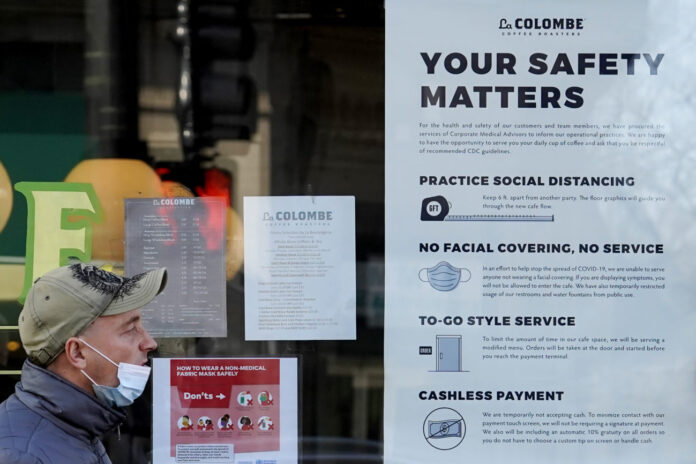PROVIDENCE, R.I. (AP) — With the coronavirus coming back with a vengeance across the country and the U.S. facing a long, dark winter, governors and other elected officials are showing little appetite for imposing the kind of lockdowns and large-scale business closings seen last spring.
Many also continue to resist issuing statewide mask rules.
Among the reasons given: public fatigue, fear of doing more damage to already-crippled businesses, lack of support from Washington, and the way efforts to tame the virus have become ferociously politicized.
“I think that governors and mayors are, again, are in a really tough spot. The American population is emotionally and economically exhausted,” Dr. Megan Ranney, an emergency physician and professor at Brown University in Providence, Rhode Island.
“I think that there are some minimum things that governors and mayors could and should be doing right now. But the trouble is, without support from the federal government, it becomes very difficult to do these things,” Ranney said, citing the need for a stimulus package from Washington to help businesses pull through.
Increasingly alarmed public health officials and medical experts say time is running out as hospitals buckle under the crush of cases and Americans approach Thanksgiving, a period of heavy travel and family gatherings that are all but certain to fuel the spread of the virus.
The coronavirus is blamed for 10.6 million confirmed infections and almost a quarter-million deaths in the U.S., with the closely watched University of Washington model projecting nearly 439,000 dead by March 1. Deaths have climbed to about 1,000 a day on average.
New cases per day are soaring, shattering records over and over and reaching an all-time high on Thursday of over 153,000.
With cases rising rapidly in Mississippi, Republican Gov. Tate Reeves said he will not consider a statewide shutdown of businesses.
In the spring, Reeves set a county-by-county mask mandate that was based on case numbers. He issued an executive order that affected just 15 of the state’s 82 counties, and eventually imposed a statewide mask mandate that was in effect from Aug. 4 to Sept. 30.
“The people of Mississippi can’t just go home, shut down their small businesses, shut down their restaurants, shut down their gyms, shut down other small businesses for six weeks and just think that you can come back six weeks from now, flip a switch and everything is going to be fine,” he said. “That’s not the way the economy works.”




